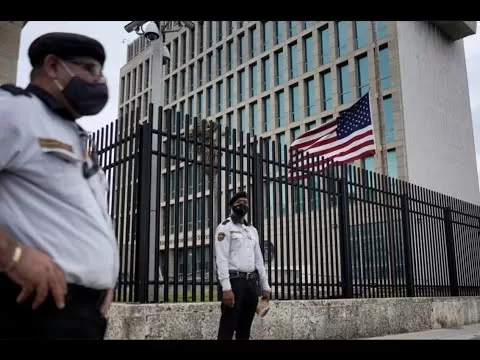By Joseph S. Nye, Jr.*
CAMBRIDGE.– Is a war between the United States and China over Taiwan possible? China considers the island — located 90 miles (145 kilometers) off its coast — a renegade province, and President Xi Jinping brought up the issue at the recent 20th Congress of the Communist Party of China (CCP). Although Xi stated that he prefers a peaceful reunification, his goal was clear and he did not rule out the use of force. Meanwhile, in Taiwan, the percentage of the population that identifies only as Taiwanese continues to exceed that of those who consider themselves to be both Taiwanese and Chinese.
The US has long tried to talk Taiwan out of officially declaring its independence and to prevent China from using force against the island, but China has been building up its military capabilities and President Joe Biden has already mentioned four times that they will defend Taiwan. Taiwan. On each occasion the White House published clarifications noting that it did not change the US policy of just one China.
But China countered that recent visits by high-level US officials to Taiwan are turning that policy into an empty shell. China responded to the trip by Nancy Pelosi, Speaker of the US House of Representatives, by firing missiles off the coast of Taiwan. What will happen if Kevin McCarthy becomes Speaker of the House, under Republican control, and follows through on his threat to lead an official delegation visit to the island?
When President Nixon traveled to China and met with Mao in 1972, both countries were interested in balancing Soviet power because the USSR was their biggest problem, but now China has sided with Russia since their biggest problem is the US. In any case, Nixon and Mao failed to agree on Taiwan. After Nixon’s visit, the US strategy was to link up with China, hoping that increased trade and economic growth would expand its middle class and lead to its liberalization. Xi, however, has tightened the CCP’s grip on civil society and in regions like Xinjiang and Hong Kong signaled his ambition to recapture Taiwan.
US relations with China are at their worst in more than 50 years. Some blame former President Donald Trump for this, but it was Chinese leaders who lit the fire with mercantilist manipulation of the international trading system, the theft and coercive transfer of Western intellectual property, and the militarization of artificial islands in the sea of South China. The US reaction was bipartisan, but it was not until the end of his second year as president that Biden met with Xi personally (at the recent G20 summit in Bali).
The US goal is to prevent China from using force against the island and Taiwanese leaders from declaring their legal independence. In the months before his assassination, former Japanese Prime Minister Shinzō Abe urged the US to commit more clearly to Taiwan’s defense. Other experts, however, fear that such a policy change would provoke a response from the Chinese, as it would remove the ambiguity that now allows them to placate nationalist sentiment.
How likely is a conflict? The US chief of naval operations warns that the naval power of the Chinese may tempt them to act if they believe that the passage of time will not favor them. Others believe that President Putin’s failure in Ukraine led China to take a more cautious approach and wait until after 2030. Even if China refrains from a full-scale invasion, a clash of ships or planes could change the situation, especially if there were fatalities. If the US reacts by freezing Chinese assets or invoking the Trading with the Enemy Act, both countries could fall into a real cold war (rather than a metaphorical one), or even a hot war.
Neither the US nor China pose a threat to the other. They do not seek to conquer the other nor could they, but if the administration of the Taiwan question fails, the conflict could become existential. The US should continue to discourage formal Taiwanese independence, but at the same time help it become a porcupine hard to swallow It should also work with its allies to strengthen naval deterrence in the region, but should avoid provocative visits that could lead China to speed up plans for an invasion. As Nixon and Mao long recognized, diplomatic deals to buy time have great advantages.
Spanish translation by Ant-Translation
Copyright: Project Syndicate, 2022.



